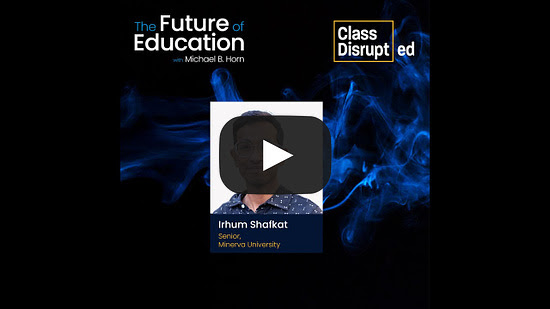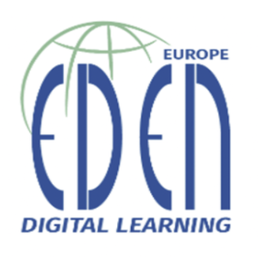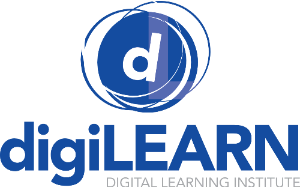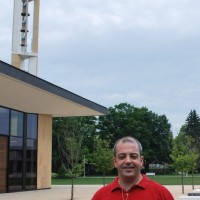December 28, 2023
A Student’s View on the Challenges and Possibilities of AI in Education
The second of two items from a neo-liberal… This one is an item from a business professor with little direct experience in education, but who believes free market economic principles are the answer to education’s (and pretty much all other society’s social) problems.
THE FUTURE OF EDUCATION A Student’s View on the Challenges and Possibilities of AI in Education
PREVIEW AI expert and Minerva University senior Irhum Shafkat joins me and Diane Tavenner to discuss where AI has been, where it’s going, and the rate at which it’s moving. We also discuss the many forms the technology takes, its implications for humanity, and, of course, its applications in education—as told by a student. As always, subscribers can listen to the conversation, watch it, or read it below.
1:48—Introducing Irhum
3:54—Irhum’s Reflections on Minerva
7:03—Defining AI
11:16—Recent Iterations of AI
12:47—Intersection of AI and Humanity
17:24—The Pace of AI
21:43—AI from the Student Perspective
25:12—Thinking Beyond Chatbots
31:17—The Opportunity for Creating Education Tools using AI
40:10—Recommendations
Diane Tavenner:
Michael, you’ve just spent a week at the happiest place on Earth, and I must admit, I’m a little bit jealous.
Michael Horn:
For those who may be confused about what the happiest place on Earth is, it’s Disney World. I was just there with my kids. First time for them. It was a blast. Diane, you know what? I came away with a few takeaways, but one of them was the excellence at scale. Disney has 74,000 employees in that park. And almost every single one of them – it’s probably like 73,500 of them – are just dedicated to making your experience better than the last person you just interacted with. And it’s astounding – however they have managed to do that. So it was a blast. Thank you for asking. But we’re not here to talk about my vacation, although that might be fun. Instead, we’re looking to continue to dive into some of these sticky questions around K-12 Education. Help people see different ways through what has often been pitted as zero-sum battles between the adults in the room and try to think through how we can unleash student progress and prepare them for the world into which they’re entering. And obviously a question that exploded into both of our minds starting last year, Diane was the topic of AI. And, as opposed to the Metaverse, it is still the topic du jour. It is still what everyone is wondering about: artificial intelligence, what do we do with it, and so forth. And you have been teasing me that you have the perfect guest to help us think about this in some novel ways. Take it from here, Diane.
Diane Tavenner:
Well, I have indeed been doing that. You’re right. AI so far has a longer shelf life. So we’ll see how long that lasts. It’s my great pleasure to introduce you to Irhum. And Irhum and I first met a few years ago when he was a freshman at Minerva University. He was coming from Bangladesh to that global university. He’s now a senior. He spent the last two summers as an intern at Google X here, just about a mile away from where I live. And at Google X, he’s really been focused on large language model, aka AI, research. And you’ve been hearing about Irhum from me and all of our conversations we’ve been having for quite some time, Michael. So, what you know is that I’ve learned a ton from him about AI. And one of the things I love about talking AI with Irhum is that even though he has a ton of knowledge, and, for example, he writes a popular technical blog about AI that I have looked at, and I can’t even decipher a sentence of it. So, highly technical, deep knowledge. But he also is a system thinker, and he cares deeply about how technology is used, how AI is used, and what it means for our society. And so he’s willing to and able to talk with people like me, lay people like me, and help me understand that and engage in a good conversation. And for our purposes, I think, most importantly, Irhum is 20, and it’s so critical to be in dialogue with people in this generation. I think we give a lot of lip service in education to the consumers, if you will, or the students, and then we don’t involve them in our dialogue. And so, I’m just really grateful that he’s here and you all get to meet. And so, welcome, Irhum.
Michael Horn:
Irhum, it is so good to have you here. Diane has been teasing this for a while, so thank you for joining us. Before we dive into the AI topic itself, I would just love to hear, through your words – because I’ve heard it a little bit through Diane’s – but I’d love to hear and the audience would love to hear about your journey to Minerva University, your journey to diving into topics of AI. And really, how has that school experience specifically been? Like, what has worked? What hasn’t?
Irhum Shafkat:
Yeah. Thank you so much for having me. Let’s just get into it. I’m one of those people who the standard school system was just not designed for, rather frankly. I grew up inside the national school system back in Bangladesh, up to fourth grade, essentially, and it just wasn’t designed with someone like me in mind. We’re talking an institution with 50 person classrooms, teachers barely able to give anyone attention. And the school system is geared to make you pass a university entrance exam, and if you do that, you’ve done it, you’ve succeeded. And my mindset often was, like, I joked that I was learning full-time and going to school on the side. The way I saw it in my mind, that’s amazing. And I’d say the only reason my path worked out the way it did is because when I was in finishing up middle school, entering high school, so, like, eight to nine grades, like that window, the Internet just rapidly proliferated across the entire country within a couple months. Short couple of months, essentially. You went from not a lot of people using the net to a lot of people using the Internet. And I was one of those people, and I was like, “Oh my God, it’s not that I don’t like math, it’s that I don’t understand it.” And there’s a difference between those two things. And I was one of those people. Like, Khan Academy was quite literally designed for me. I’d log onto that thing and I was like, “Oh my God, I actually understand math,” and I can teach myself math. I can succeed at it. And the impression that it left me with is that technology is really opened up. The Internet, in particular, is like one of those frontier technologies that just opened up learning to anybody who could access it and go through the right set of tools needed to learn things, like Khan Academy being one of them. And I guess that’s the mindset I’m seeing this new generation of technologies in AI, too. I wonder who else is going to be using them the way I did and learn something new that their environment wouldn’t otherwise allow them to. I suppose I kept teaching myself things, and that’s kind of, I guess, partly how I ended up at Minerva is because I wanted a non-traditional university education because the traditional high school education clearly wasn’t a fit for me at all. And Minerva was like, “Come here, we won’t bore you with lectures. Our professors barely get to speak for more than five minutes in class. It’s all students just talking to each other and learning from each other. And I was like, “Sign me up.”
Diane Tavenner:
Well, and Irham, that curiosity that you are describing in yourself is, I think, one of the things that led you to discover AI long before most of us discovered it. And you discovered it on the Internet. You discovered it by reading papers and sort of following these blog posts while you were teaching yourself. And so, I don’t think it was a surprise for you when it burst onto the scene, because you knew what was coming and where it was coming from. And yet, I think that the world’s reaction has been interesting. And so, you sent me a quote the other day. You texted me a quote about AI that had us both laughing pretty hysterically, probably because it feels very true. And so, I’m going to share that quote, which is, “Artificial intelligence is like teenage sex. Everyone talks about it. Nobody really knows how to do it. Everyone thinks everyone else is doing it, so everyone claims they are doing it.” Let’s just start by figuring out what people are actually doing. If anything, this is sort of a ridiculous question, but can you just explain AI to us and why it’s suddenly this big deal that it feels like it just spontaneously arrived in 2023?
Irhum Shafkat:
I guess there are like three big terms that we should go over when we say AI because it just means so many things. Like AI is such a vague, hard thing to define. But I guess the way I see it is anything that’s just right beyond the edge of what’s computationally possible right now. Because once it becomes possible, people kind of stop thinking about it as AI.
Diane Tavenner:
Interesting.
Irhum Shafkat:
Okay, other people would have their own definitions, but I feel like that’s like, what’s historically been true. Once something becomes possible, it almost feels like it’s no longer AI. What has been more recent, though, is how we keep pushing different tier. Like, if it was the 90s, for example, when Kasparov played with Deep Blue, the chess-playing engine. That thing was like a massive, highly sophisticated program with millions of logical rules. That’s what’s different. What happened over the last ten years is we really pivoted towards machine learning, and specifically a branch of it called deep learning, which allowed us to use really simple algorithms on enormous amounts of data. We’re talking several thousand lifetimes worth of data. When you were talking about training a language model, for example, and ginormous amounts of compute to push all that data through a very simple algorithm. And that’s what changed in that it turns out really simple algorithms work extremely well when you have a large enough compute budget and enough data to pass through them. And the instantiation that everyone really captured the imagination is against a narrower part of machine learning still is called large language models. The large being like, they’re much larger than models for historical language models, in the sense that, at their core, you give them a piece of text, and they just play a guessing game. We’re like, okay, so what’s the next word? And if you keep predicting the next word over and over, you form entire sentences, paragraphs, entire documents that way.
Diane Tavenner:
So it sounds like, basically, I’m going to bring it back to education really quickly, Michael. Like AI as you’re describing it, Irhum, is this concept we have in education and learning, which is I plus one. So it’s like where you are just a little bit harder than what you can do, and that’s like your zone of proximal development, like where you best learn. So, it sounds like AI is in that space. It’s like what we can do plus a little bit more is what keeps pushing us forward, basically, on everything that’s written on the Internet with simple formulas.
© 2023 Michael Horn
No comments yet.
RSS feed for comments on this post. TrackBack URI
- SEO Powered Content & PR Distribution. Get Amplified Today.
- PlatoData.Network Vertical Generative Ai. Empower Yourself. Access Here.
- PlatoAiStream. Web3 Intelligence. Knowledge Amplified. Access Here.
- PlatoESG. Carbon, CleanTech, Energy, Environment, Solar, Waste Management. Access Here.
- PlatoHealth. Biotech and Clinical Trials Intelligence. Access Here.
- Source: https://virtualschooling.wordpress.com/2023/12/28/a-students-view-on-the-challenges-and-possibilities-of-ai-in-education/
- :has
- :is
- :not
- :where
- $UP
- 000
- 11
- 12
- 13
- 16
- 20
- 2023
- 22
- 24
- 28
- 40
- 50
- 500
- 72
- 73
- 8
- a
- Able
- About
- about IT
- Academy
- access
- across
- actually
- admit
- adults
- against
- ago
- AI
- ai in education
- aka
- algorithm
- algorithms
- All
- allow
- allowed
- almost
- also
- Although
- always
- amazing
- amounts
- an
- and
- answer
- anyone
- anything
- applications
- ARE
- around
- arrived
- artificial
- artificial intelligence
- AS
- asking
- astounding
- At
- attention
- audience
- auto
- away
- b
- back
- Bangladesh
- Basically
- battles
- BE
- because
- becomes
- been
- before
- begin
- being
- believes
- below
- BEST
- Better
- between
- Beyond
- Big
- Bit
- Blog
- Blog Posts
- Blue
- both
- Branch
- bring
- budget
- business
- but
- by
- called
- came
- CAN
- captured
- Category
- Center
- challenges
- changed
- claims
- class
- clearly
- coming
- comment
- comments
- Compute
- concept
- confused
- Consumers
- continue
- Conversation
- conversations
- Core
- could
- country
- Couple
- course
- Creating
- critical
- curiosity
- data
- day
- deal
- Decipher
- dedicated
- deep
- deep learning
- define
- definitions
- describing
- designed
- Development
- dialogue
- Diane
- DID
- difference
- different
- direct
- discover
- discovered
- discuss
- Disney
- dive
- diving
- do
- documents
- doing
- done
- Dont
- each
- earth
- Economic
- Edge
- Education
- else
- employees
- end
- ended
- engage
- Engine
- enormous
- enough
- entering
- Entire
- entrance
- Environment
- essentially
- Ether (ETH)
- Even
- Every
- everyone
- everything
- exam
- example
- Excellence
- experience
- expert
- Explain
- extremely
- far
- feedback
- feel
- feels
- few
- First
- first time
- fit
- five
- focused
- following
- For
- form
- forms
- forth
- Forward
- Fourth
- Free
- from
- Frontier
- fun
- future
- game
- geared
- generation
- get
- Give
- Global
- Go
- God
- going
- good
- grade
- grateful
- great
- grew
- Guest
- had
- happened
- Hard
- harder
- Have
- having
- he
- hear
- heard
- hearing
- help
- here
- High
- highly
- him
- historical
- historically
- How
- How To
- However
- HTTPS
- Humanity
- i
- identifier
- if
- imagination
- implications
- importantly
- in
- inside
- instead
- Institution
- Intelligence
- interesting
- Internet
- into
- introduce
- involve
- IT
- items
- iterations
- ITS
- itself
- joining
- joining us
- Joins
- journey
- just
- Keep
- kept
- kids
- Kind
- Know
- knowledge
- knows
- language
- large
- larger
- Last
- Last Year
- lay
- LEARN
- learned
- learning
- lectures
- Led
- left
- Life
- like
- little
- live
- log
- logical
- Long
- longer
- looked
- looking
- Lot
- love
- machine
- machine learning
- make
- Making
- managed
- many
- Market
- massive
- math
- May..
- me
- means
- Meet
- met
- Meta
- Metaverse
- Michael
- Middle
- might
- millions
- mind
- minds
- Mindset
- minutes
- model
- models
- months
- more
- most
- moving
- much
- must
- my
- myself
- National
- needed
- net
- New
- next
- nine
- no
- novel
- now
- of
- often
- Okay
- on
- once
- ONE
- only
- opened
- Opportunity
- opposed
- or
- Other
- otherwise
- our
- out
- over
- own
- Pace
- papers
- Park
- part
- particular
- pass
- path
- People
- perfect
- person
- piece
- pitted
- Place
- plato
- Plato Data Intelligence
- PlatoData
- Play
- played
- pleasure
- plus
- pm
- Popular
- possibilities
- possible
- Post
- Posts
- predicting
- Prepare
- presentation
- pretty
- principles
- probably
- problems
- Professor
- Program
- Progress
- purposes
- Push
- Pushing
- question
- Questions
- quickly
- quite
- quote
- rapidly
- Rate
- rather
- reaction
- Read
- Reading
- really
- reason
- recent
- reduce
- Reflections
- research
- resource
- right
- Room
- rules
- saw
- say
- Scale
- scene
- School
- Second
- see
- seeing
- senior
- sense
- sent
- sentence
- service
- set
- several
- Sex
- Share
- Shelf
- Short
- should
- side
- Simple
- single
- site
- So
- so Far
- Social
- Society
- some
- Someone
- something
- sophisticated
- Space
- spam
- speak
- specifically
- spent
- standard
- start
- Starting
- sticky
- Still
- Stop
- Student
- Students
- subscribers
- succeed
- such
- surprise
- syndication
- system
- TAG
- Take
- Takeaways
- takes
- Talk
- talking
- Talks
- teachers
- Teaching
- Technical
- Technologies
- Technology
- ten
- terms
- text
- than
- thank
- that
- The
- The Future
- The Metaverse
- the world
- their
- Them
- then
- There.
- These
- they
- thing
- things
- think
- thinker
- Thinking
- Thinks
- this
- those
- though?
- thousand
- three
- Through
- tier
- time
- to
- told
- Ton
- too
- tools
- topic
- Topics
- towards
- traditional
- Training
- true
- try
- turns
- two
- under
- understand
- university
- unleash
- us
- use
- used
- uses
- using
- vacation
- very
- View
- wanted
- was
- Watch
- Way..
- ways
- we
- week
- welcome
- WELL
- went
- were
- What
- when
- which
- while
- WHO
- why
- will
- willing
- window
- with
- within
- wonder
- wondering
- Word
- WordPress
- words
- Work
- worked
- world
- world’s
- worth
- would
- written
- X
- year
- years
- yet
- you
- Your
- yourself
- zephyrnet














